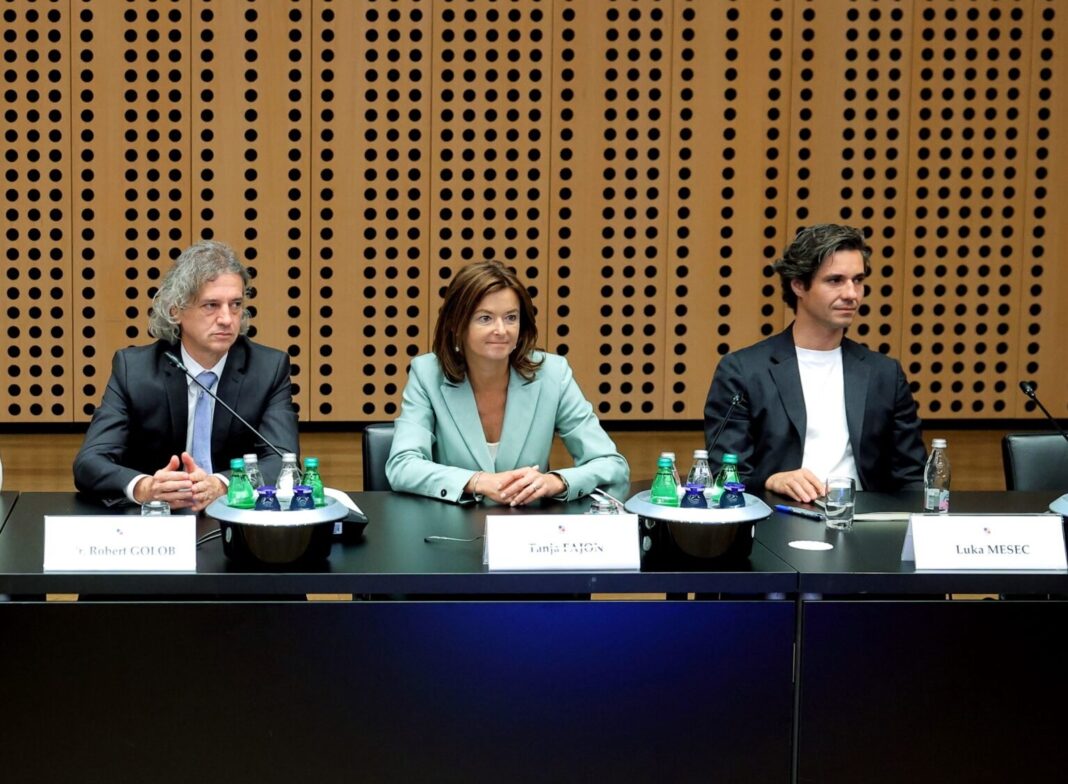By: Sara Kovač (Nova24TV.si)
Golob’s government promised a series of reforms. But reforms in key areas are nowhere to be seen, only analyses, empty agreements, and timelines. The salary system in the public sector is no exception. Yesterday, the government only presented the draft law on the common foundations of the wage system to public sector unions. On this basis, together with the unions, a consensus should be sought for the establishment of a new salary system in the public sector.
The Minister of Public Administration, Sanja Ajanović Hovnik, said that the law will be coordinated within the working group, which will meet twice a week. At the same time, working groups will be formed according to the activities to eliminate disparities, which will meet once a week. Every 14 days, there will be central negotiations, i.e., the government side with all representative unions, where they will look at how the work in the working groups is going and try to find solutions regarding which they will not be able to find a consensus in the working group.
The new salary elements are vaguely defined in the legal proposal
It is already clear that one of the more challenging issues will be the new salary scale. Jakob Počivavšek, head of the negotiation group of the public sector unions, believes that a key part is actually missing for the evaluation of the implementation of the wage scale at the moment, i.e., the proposal to eliminate wage disparities, “which will also provide one of the answers to how the jobs will actually be classified on this scale”. On the other hand, there are still more concerns on the trade union side regarding the announced renovation of the salary system. Počivavšek emphasised the issue of comparability between the planned wage pillars and their content. They also estimate that some new salary elements are vaguely defined in the legislative proposal. On the other hand, the representatives of the medical union Fides were disturbed by the comment of the other unions that they expected some comparability between the pillars. As the president of Fides, Damjan Polh, said, precisely because of this comparability, they did not see themselves in the single wage system and their goal was to get out of it.
What has the government done since its inception?
Actually nothing. It has not carried out any of the promised reforms yet, it only promises, negotiates, sets timelines and drafts. Sooner or later, the time would come when Robert Golob would have to explain to the public why his government is not fulfilling its promises. We have witnessed several times his failure to answer certain questions and his reluctance to explain matters, even if they concern the Slovenian public and the people because of whom he sits in the Prime Minister’s chair today. Recently, however, he admitted that they had given themselves too much trouble with the reforms, and it was clear between the lines that there would be no reforms.
As Anže Logar wrote in his column: “in the government of Robert Golob, the word timeline takes on a new, expanded meaning. It becomes a substitute for – content. Because you have no substantive solutions, and you have already announced the reform to the public. You promised a fair tax reform, where we will all have more, and a fair pension reform, so that no one will live below the poverty line. You do not know how yet, but you have a verbal joker – the timeline.”
The draft law does not bring anything concrete – only delays
The government became familiar with the text of the draft law on the common foundations of the salary system on Thursday when it also adopted decisions to continue negotiations. At the same time, it instructed the line ministries to prepare proposals for changes to the collective agreements of activities based on the accepted starting points and to examine the appropriateness of the current regulation of the title system. The government presented the revised starting points for negotiations on the renewal of the salary system, part of which is the delay in the implementation of the new salary scale, to the trade union side a week ago. The initial salary classes of positions and titles from the lower third of the salary scale would generally be transferred to the new scale a year later than initially planned, namely from January 1st, 2025, part of the salary classes would be translated in 2026, and the last would be salary classes for officials in 2027. According to the explanations of Minister Sanja Ajanović Hovnik, negotiations on the renewal of the public sector salary system and the elimination of disparities should be considered together with negotiations on other contents, namely on the renewal of titles, renewal of allowances, annual leave, and renewal of professional insurance.

